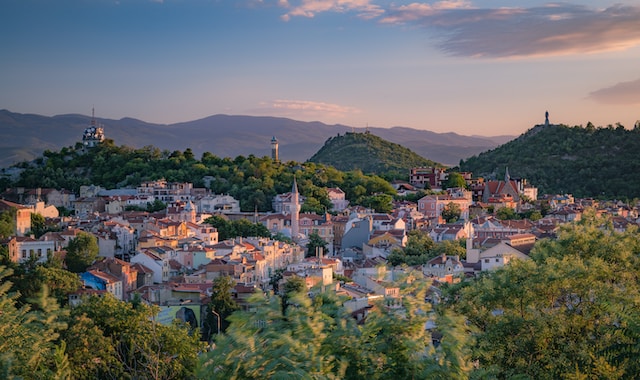Bulgaria is a nation situated in the Balkan Mountains in southeast Europe. The nation has a rich cultural past that is reflected in its music, handicrafts, traditional dances, and attire. The nation, which is a part of the European Union, is the 16th-largest in Europe. Sofia is the country’s capital.

Bulgaria’s economy runs on a free market, with the private sector making up the majority of the market. The nation’s economic growth rate fell by 5.5% as a result of the effects of the financial crisis that lasted from 2007 to 2010. But it swiftly bounced back, recording an economic gain of 0.2% in 2010. The nation has been going through tremendous economic growth recently, although the following season was also a difficult one for the economy. Since 2001, it has also drawn large sums of foreign direct investments. Bulgaria’s GDP was $123.9 billion in 2014. (PPP).
Bulgaria’s Leading Industries
The largest industries in Bulgaria, which the World Bank classifies as having an upper-middle-income economy, are mining, industry, agriculture, and tourism, as will be covered below.
Industry sector
Metallurgy and machine building are the two main industries in Bulgaria. The nation produces around 10% of the hydraulic machinery used worldwide. In terms of metallurgy, the production of iron and steel started after World War II and continues now. However, Bulgaria has also been involved in the processing of other metals over the years. Iron, lead, zinc, copper, sulfuric acid, and steel are among the metals that are processed in areas of the nation including Pirdop, Kremikovtsi, and Kurdzhali. Manufacturing also produces machine tools, caustic soda, nuclear energy, military hardware, weapons, food, drink, tobacco, textiles, and sugar in addition to metal. The main industrial exports of Bulgaria are refined fuels, iron, steel, machinery, and clothing. The shipbuilding industry, which has operations in cities including Varna, Sofia, Plovdiv, Ruse, and Pernik, makes up another significant portion of the sector.
Mining sector
The mining industry in Bulgaria heavily influences the industrial sector. The nation takes pleasure in possessing a wealth of mineral resources. Copper, lead, and zinc reserves are mined in the Balkan, Rhodope, and Sredna mountains, while iron ore deposits are found in northwest Montana. One of the biggest producers of zinc, copper, and lead worldwide is Bulgaria. Additionally, black coking coal reserves have been found in Kremikovtsi, a town close to Sofia. Through exploring efforts, about 40 coal basins with three billion tons of primarily lignite coal deposits have been found. Lignite is a mineral resource that is frequently used as an energy source in Bulgaria’s manufacturing sectors. Additionally, it makes it easier to power the thermal stations in Pernik, Burgas, Plovdiv, and Sofia. The nation also has a few small natural gas and oil reserves. However, the majority of its oil supply comes from Russia. Dolomite, rock salt, kaolin, barite, asbestos, limestone, and gypsum are among other less-valued minerals that can be found in Bulgaria.
Agriculture Sector
Tomatoes and grapes are only a couple of the top exports from Bulgaria. But in addition to these goods, the nation also cultivates grains like maize, barley, rye, rice, oats, and soybeans. Oil is made from sunflower, which is primarily farmed in the north, while pulp is used to make cattle feed. High-quality Oriental tobacco is grown by farmers in the south. Sheep, chickens, and pigs are among the other animals that Bulgarian farmers raise. Besides, Bulgaria’s agriculture industry is also rapidly expanding to include fishing and fish breeding.
Tourism sector
Since the 1960s, Bulgaria’s tourism industry has grown significantly. According to government statistics, 750,000 tourists came to the country in 2005. In 2017, the World Bank’s statistics showed that there were 8.8 million tourists, an increase of 12 years. The majority of international visitors to Bulgaria come from Germany, Greece, Romania, Russia, and Turkey, accounting for around 50% of all visitors to the nation each year. Bulgaria is well known throughout the world for its seaside and winter resorts. Additionally, it boasts roughly ten UNESCO World Heritage sites that are among the nation’s numerous tourist attractions. The Black Sea and Pirin National Park are two additional tourist locations. 150,000 people were employed by the tourism industry in 2014, which also contributed 15% to Bulgaria’s GDP.







